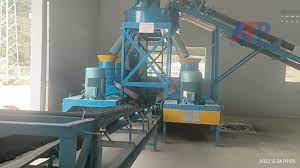The Middle Ages, spanning from the 5th to the 15th century, organic fertilizer pellet machine witnessed further technological advancements in Europe, Asia, and Africa. The invention of the printing press by Johannes Gutenberg in the 15th century revolutionized communication, making books and information more accessible to the masses. This period also saw the development of maritime technologies, such as the compass and the astrolabe, which enabled long-distance exploration and trade.
The Industrial Revolution, beginning in the late 18th century, marked a turning point in human history with the advent of mechanized manufacturing and the harnessing of steam power. Innovations such as the steam engine, the spinning jenny, and the power loom transformed industries such as textiles, transportation, and agriculture, leading to the rapid urbanization and industrialization of Western societies.
The 20th century witnessed a series of technological revolutions that reshaped the modern world. The invention of the telephone, radio, television, and the internet revolutionized communication, connecting people across the globe and facilitating the exchange of ideas and information on an unprecedented scale. The development of transportation technologies, such as the automobile, airplane, and spacecraft, transformed travel and exploration, shrinking the world and expanding human horizons.
Today, we stand on the brink of another technological revolution, driven by advancements in artificial intelligence, biotechnology, and renewable energy. These emerging technologies hold the promise of solving some of humanity’s most pressing challenges, from climate change to disease, and opening up new frontiers of exploration and discovery.
In conclusion, the evolution of technology is a testament to human ingenuity and innovation. From the simple tools of our ancestors to the complex technologies of today, our journey through time has been defined by our ability to adapt, invent, and create. As we continue to push the boundaries of what is possible, it is important to remember the lessons of the past and use technology responsibly and ethically to build a better future for all.
